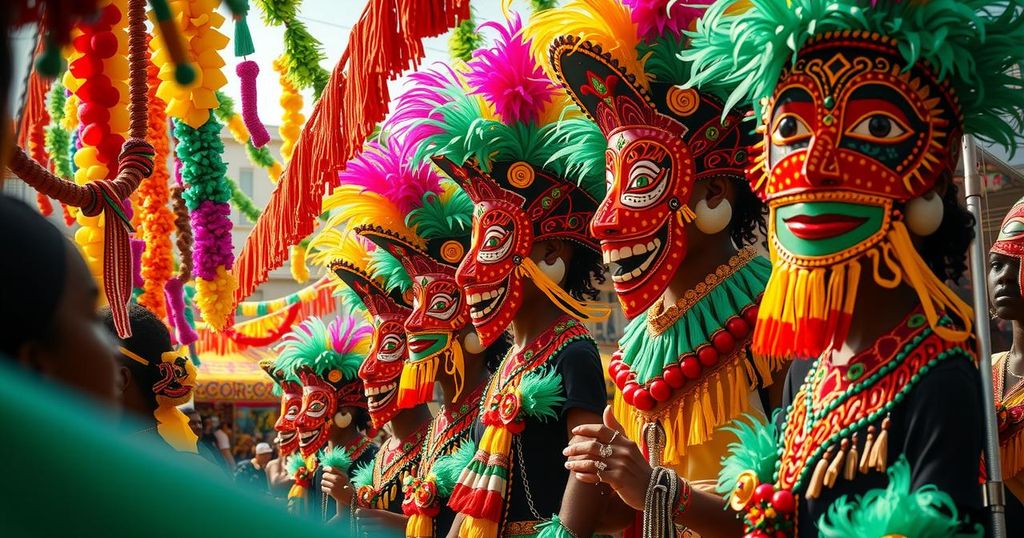The Long Wave newsletter explores the Trinidad and Tobago carnival’s celebration of African roots, highlighting its cultural significance and resilience against adversity. Recent geopolitical issues are also discussed, alongside the continuing connection between Africa and the Caribbean through music and social movements. The carnival remains a vital reflection of identity and unity in the diaspora, providing a space for cultural celebration and shared understanding.
The Long Wave newsletter highlights the Trinidad and Tobago carnival’s celebration of African roots through a discussion with Caribbean correspondent Natricia Duncan. The carnival, which has its origins in the late 1700s, symbolizes defiance against oppression and promotes cultural identity through music, dance, and art, particularly reflecting the history of enslaved populations. The festival serves as a vital connection to these roots, demonstrating resilience and unity among diverse communities in the diaspora.
Recent developments in various regions have been troubling, including civilian targeting in the Democratic Republic of the Congo due to M23 rebels and heightened tensions between Guyana and Venezuela following a maritime incident. Meanwhile, Donald Trump’s rollback of diversity initiatives in the U.S. has garnered attention from civil rights activists who fear a regression in achievements.
Natricia notes the significant presence of African artists at this year’s carnival, emphasizing the links between Caribbean music and West African culture. The influence of calypso music, rooted in Nigerian traditions, illustrates a shared history that persists in the Caribbean, proving that African cultural elements remain steadfast despite attempts at erasure.
As cultural connections between Africa and the Caribbean strengthen, political movements for reparations and educational reform also emerge. Natricia observes a growing awareness and appreciation for these connections, fueled by social media and the proliferation of information. The ongoing dialogue reinforces the notion that both regions share not only historical grievances but also cultural kinship.
Despite the challenges Trinidad and Tobago faces, including an uptick in crime, this year’s carnival manifests as a celebration of resilience and a determination for joy amidst adversity. Natricia perceives this celebration as an enduring reminder of the deep, historical ties that unite the diaspora, allowing individuals to find solace and connection through shared experiences. Carnival remains a powerful platform for expressing cultural identity and fostering community spirit, reinforcing the idea that cultural heritage plays a vital role in overcoming contemporary struggles.
Trinidad and Tobago’s carnival serves as a beautiful testament to African heritage, showcasing resilience and unity amidst oppression. The connections between the Caribbean and Africa, highlighted by music and cultural practices, demonstrate the enduring influence of shared history. As both regions navigate contemporary political and social challenges, events like carnival offer hope and an opportunity for individuals in the diaspora to celebrate their identity and history. In a world marked by division, the flourishing relationships between these cultures exemplify the power of community and cultural expression.
Original Source: www.theguardian.com




